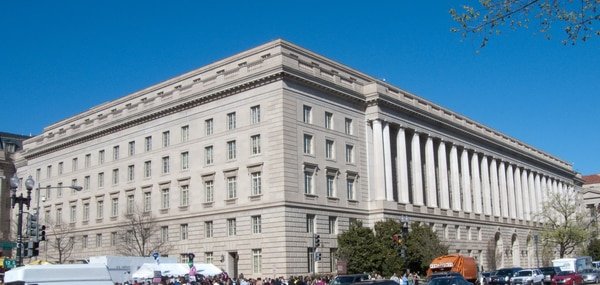2019-10-2 20:48 |
On September 28, 2019, a video in which Belarusian President Alexander Lukashenko talks about mining bitcoin with the country’s nuclear power began to make the rounds on Twitter. Though the speech presented is not new (it dates back to April 2019) and was covered by Bitcoin Magazine at the time, the effect of this sudden reemergence has given birth to a new round of debates about nation states getting involved in bitcoin mining.
First of all, it’s essential to ask the question, “Is Belarusian involvement in mining good for Bitcoin?”
On one hand, this would mean the network’s hash rate would increase, thus granting the network greater security. On the other hand, it’s difficult to estimate what kind of impact this can have on the entire mining landscape and to what extent Belarus is planning to be a good actor who plays by the rules. Though it’s unlikely for the hash rate to be great enough to launch 51 percent block reorganization attacks on the Bitcoin network, that calculus may change when allied nation states join together in mining operations.
Nonetheless, if the purpose is to convert electricity into bitcoin in order to generate a source of income, then the incentives align toward becoming an honest actor. Belarus apparently has no interest in attacking the Bitcoin network, as the role of its projected mining operation is to generate more fiat and potentially jumpstart a profitable industry.
Why Countries Like Belarus Need BitcoinLet’s take a more careful look at Belarus’ history as a country and why this former member of the USSR has decided to get into Bitcoin. Since December 2017, the country has enacted multiple laws which favor mining, trading and investing in cryptocurrency-related projects. The sale of digital assets is exempt from value-added tax and will not be subject to taxation, at least until January 2023.
Western countries like the United States, France, Germany and the United Kingdom would regard this type of decision as irrational and potentially dangerous for the long-term stability of the financial systems they’ve built. Most importantly, they have well-established banking systems whose institutional influence extends toward former colonies (and some would also make a case that this system exists as a form of contemporary economic neocolonialism).
These factors grant them a privileged position of financial control that can definitely be disrupted by the introduction of Bitcoin. It’s also why these countries tend to impose big taxes on those who deal with BTC: The gains should be reduced as much as possible in order to discourage the average person from adopting a parallel monetary system that cannot be controlled.
One can argue that these first-world players need to constantly position themselves on the side of innovation — just because they came out as victors of the Industrial Revolution and championed the various waves of democratic transition around the world doesn’t mean that they should remain complacent and watch new inventions take over. However, in the case of Bitcoin, the benefits are dwarfed by the costs: Pioneering a field over which you have no control means very little when you have a lot of influence and control over most of the world, and your private sector is spread globally to bring you more revenue.
Breaking Free of ColonialismThis is where countries like Belarus can step in and make small but bold attempts to liberate themselves from the financial order to which they have been arbitrarily subjected. Historically speaking, Belarus has been under the political influence of the Grand Dutchy of Lithuania, the Polish-Lithuanian Commonwealth, the Russian Empire and the USSR. In the span of two centuries, the Eastern European territories have declared independence twice, only to be annexed and conquered by greater neighboring military powers.
It was only after 1991 that Belarus was able to regain its independence, work toward building a constitutional framework of its own, and try to build its own national identity outside that of the USSR. However, the country did not have the proper peaceful environment to develop its economy, build trade treaties, and possibly extend its institutional framework in lesser developed nations.
Opportunities Beyond BelarusBelarus is not the only European country which finds itself in the second tier of development and influence in global affairs: When former Soviet countries joined the global markets in the early 1990s, they discovered that their industry, trade networks, and agriculture could not compete with those of their Western counterparts. The cars they manufactured were not as good, the quality of their domestic products was subpar and their crops could not produce the same amount of grain. And as soon as superior Western consumer items entered their market, they essentially had to keep up or shut down the operations — and it was more often the latter that happened.
Without a private banking tradition and with very little experience in dealing with free markets, a country like Belarus has nothing to lose if it adopts bitcoin as a currency. When preserving the current system means that you keep your second-class status, then the act of embracing revolution becomes a quest for liberation and a hope for better days. For nation states, Bitcoin can be that new beginning that they need in order to escape the institutional framework that keeps them down.
When preserving the current system means that you keep your second-class status, then the act of embracing revolution becomes a quest for liberation and a hope for better days.
In the case of Belarus, getting involved in BTC mining is a brilliant choice, especially if it makes use of surplus energy and it serves the purpose of increasing foreign capital flow (assuming that the bitcoin are entirely sold and not held as reserve). Allowing your electricity to secure the Bitcoin network can easily become a national industry, and it’s very likely that private actors will also try to negotiate their positions in this burgeoning sector.
However, Belarus isn’t democratic enough to allow free markets to blossom and is not part of a large organization of states such as the European Union (which would allow people from any member state to simply cross the border and start a business). Unlike in nearby Estonia, the possibilities for investments are narrower — but given the greater independence from international organizations, there is more room for Belarus to make Bitcoin-friendly political decisions.
Transitioning to BitcoinThe transition to bitcoin should not be a reckless plunge, but a gradual process which introduces the new financial standard in a safe way. A BTC-only political establishment is still unheard of and may just lead to financial isolation when dealing with neighboring countries. On the other hand, a slow and steady integration of this parallel monetary system, accompanied by a large-scale incentivization of investment by tax exemptions, will definitely attract investors and developers and will generate all sorts of opportunities.
The times that we’re living are truly remarkable, and the fact that digital, sound, uncensorable and unconfiscatable, nongovernmental money can become a nation’s plan for financial prosperity is exciting.
Most of the current system of international relations, which was created after World War II, is designed to have a rather clear and predictable world order, which was based on treaties and the ability to develop nuclear weapons as deterrents for conflicts and ways of receiving a seat at the table. As a result, nations that got the worse side of the deal are deprived of the resources and means to become world powers, as the tendency of the United Nations framework is to preserve the balance of power.
Nothing to LoseTo paraphrase the late cypherpunk Timothy C. May, countries that try to integrate Bitcoin have nothing to lose but their barbed wire fences. If all of the economic colonies that have very little political power and have been historically forced to embrace other nations’ financial frameworks decide to start mining bitcoin, then they could possibly generate wealth and negotiate better deals with the great world powers.
Though he seemed to be joking, President Lukashenko could go down in history as one of the first bold leaders who decided to embrace Bitcoin at a national scale. And even though the short-term results are easy to anticipate and should lead to an increased inflow of fiat money, it’s going to be interesting to observe the phenomenon in, say, 2025, by which point the government of Belarus could have mined BTC for half a decade.
Are we actually going to see any of the economic and political benefits projected in this article? Well, there is only one way to find out.
The post Op Ed: Belarus and the Case for National Bitcoin Strategies appeared first on Bitcoin Magazine.
origin »Bitcoin price in Telegram @btc_price_every_hour
Bitcoin (BTC) на Currencies.ru
|
|





















